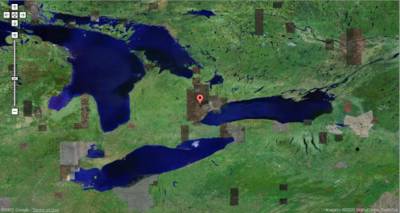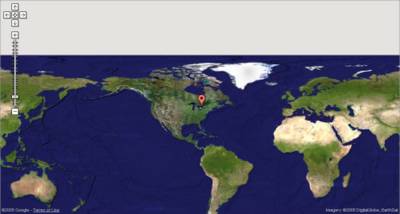--------------------
in the spirit of Voltaire, and in light of the upcoming 25th anniversary celebration of Pride in toronto, this perspective offered from a series of interviews in the Toronto Star becomes even more poignant...--------------------
I took this cross-country trip to grasp the true voice of Canadians.
I'd already heard the politicians, religious leaders and gay activists. And I'd studied the polls that told me that 40 per cent of Canadians support gay marriage, 40 per cent oppose it, and 20 per cent are undecided. I also knew that opposition was declining and support was growing, as some undecideds were perhaps having a change of heart.
I intuitively felt that this was not a simple yes or no issue. I believed the real voices of Canadians had more complexity, depth, and nuance. It is a story that would be told in quiet tones by unsure and often conflicted voices.
--------------------------------------------------------------------------------
Two voices that don't show up in opinion polls come from the heart of British Columbia's Bible belt. Krystal Morrison, 22, and Amy Clark, 19, both of Kelowna, take their cues from their pastor. They open our conversation by revealing they're both devout Christians and explain that their perspective on the issue of same-sex marriage is coloured by their faith. But, unlike poll numbers, those colours have shades.
"It makes me sad that Christians are becoming known only for all the things we disagree with," says Morrison. "It makes me sad because it detracts from the real purpose of the church. I'll tell you, my views are not shared by very many people in this area. Sometimes it's really hard to say I'm a Christian," she adds. "I'm kind of a rebel."
When she was 16 and living in Washington State, Morrison became friends with some lesbians she met while working at a coffee shop. As their friendship flourished, Morrison heard the painful stories of discrimination and couldn't help but wonder, "How much of that pain was caused by Christians?" At the end of our conversation, Morrison says she would not go out of her way to prevent same-sex marriage. "My message to other Christians is that we are missing the point." She declares, "I don't have to agree with you. I have to love you."
Though less expansive, Clark is equally pointed. She mentions the story of Jesus intervening as a woman accused of adultery was about to be stoned. (For those of you who weren't paying attention in Sunday school, that's the one that goes: He that is without sin among you, let him cast the first stone.) "He wasn't saying adultery was right," Clark says.
"He was just saying, `Don't judge.'"
--------------------------------------------------------------------------------
I'm feeling jittery as I amble toward two burly men at a McDonald's in Lloydminster, Sask. This is a town divided, literally. Situated smack on the border, it is half in Alberta and half in Saskatchewan, which I suppose means gay marriage is legal on the Saskatchewan side of town and illegal on the other. They are two hard-assed truck drivers, tough-as-nails road warriors who make the Trailer Park Boys look like the Boys in the Band.
"I'm against it big time," says Jerry Bluda, 46. His buddy Ross Gundersan, 51, agrees. "Marriage is for a man and a woman," adds Bluda, who admits he has a "queer" cousin in Ottawa with whom he does not communicate. "We have nothing to talk about," he says.
"I think it's disgusting," says Gundersan. "My wife feels the same way."
--------------------------------------------------------------------------------
Sixty-four-year-old Ken Cameron, who owns KC Saddlery in Red Deer, Alta., is fighting trim in snug jeans, cowboy boots and a sharply tapered denim shirt. His massive shop, filled with saddles, spurs, cowboy boots, lariats and horse blankets, is situated on Highway 2, the road that connects Calgary to Edmonton. Like his store, his opinions are grand and orderly. This is Klein country.
Cameron accepts that same-sex marriages will probably be legalized in Canada. But he also believes such liberal laws are ushering modern civilization one step closer to the end. "Look at all the other great cultures of the world that fell," he says. "They don't exist anymore because they became dysfunctional." Cameron, who has belonged to both the Conservative and the Reform parties, worries that, "even Alberta is inching toward destruction." It's only a matter of time, he feels, before his beloved province is as messed up as Ontario. I wonder if he knows that both provinces already are about equally opposed.
"If I had livestock that didn't breed, I would have to destroy it," he says.
For him, the "right" to same-sex marriage is not the real issue. He believes the problem is homosexuality, and that discussing "rights" is ridiculous. "They are ill. But the system says they have the right to be treated like anyone else." This runs contrary to nature's law, he says. "If I owned livestock that was homosexual or if I had cows that were hallucinating because they were eating bad grass, they're gone."
But not everyone in the no camp is so decisive. I spoke with Sylvia and Allan Sparling, a married couple from Tavistock, Ont. We talked on the grounds of Parliament Hill in Ottawa. Sylvia, a 52-year-old nurse, is convinced homosexuality has biological origins, but she and her husband don't support gay marriage.
"Just don't call it marriage," she says. "We've been married for 27 years and we don't think it's the same thing. Marriage happens naturally between a man and a woman." They have a 19-year-old daughter, and if she were to announce that she wanted to marry a woman, they say, they would advise her, "Don't count us in on it. If it's a civil union, that's fine."
At other times, the voice of intolerance is so angry, it's mute.
In Corner Brook, Nfld., a husband strongly advises his wife not to talk to me. She ignores his plea, however, explaining to him that while she is extremely unfamiliar and uncomfortable with the subject of homosexuality, she feels she can contribute to my story. "I believe it is a matter of human rights, whether I feel comfortable or not," she says. Her husband pushes my business card across the table in disgust and storms away.
--------------------------------------------------------------------------------
As I cross over Lake Superior, down into southern Ontario, across Quebec and into New Brunswick, it's becoming clear that, while the polls insist the country is split on the issue, the breakdown is much more complicated. I discover that there are Canadians who feel strongly that same-sex marriage should not be legalized, and on this they are unmovable. But even those who think homosexuality is unnatural and that gays should be barred from marriage often concede they wouldn't seek out a politician who supports their views or punish one who doesn't.
In Murphy's Cove, N.S., for instance, I meet a couple standing in front of their house, which is covered in their wildly colourful folk art. It's a Sunday morning, and the local parish priest has just finished blessing their pet goat. Though they decline to give me their names, they tell me they're opposed to same-sex marriage, but also make it clear they would not oppose it. They join the chorus that laments, they wish it had another name. As I randomly approach people, I begin to realize that I could never predict how anyone would react to my questions.
In Marie Joseph, N.S., I greet Jim Langille, a beleaguered-looking, 55-year-old lobster fisherman. He's a weathered, postcard-perfect old salt, who I'm sure will fulfill my stereotype of a homophobic good ol' boy. I'm wrong. (I shouldn't have been surprised. Support for gay marriage is actually higher in Atlantic Canada than it is in Ontario.) I was astonished by his lilting voice as he let out an "oh my dear" and beamed.
"Whatever floats your boat. It's a free country. People should live and die as they choose. I think men around here feel they have to do the whole he-man, workin' in the woods, workin' on the water thing," he says. "Even if they agreed, they wouldn't say it."
--------------------------------------------------------------------------------
A retired English and drama professor living in Nanaimo, Edwin Turner, 71, is convinced the world is experiencing a cultural and moral shift and that all Canadians should be independently thinking about issues such as same-sex marriage, abortion and stem-cell research. There are a lot of ethical issues facing Canadians now and we owe it to ourselves to think things through, he says. He believes the politicians only serve to muddle the issues and wishes the courts would assume more responsibility.
Like Turner, one Broadview, Sask., businessman, who didn't want me to use his name, believes politicians use these issues for their own means, and too often there is little consistency, particularly when the issues pertain to "family values." He has the funny countenance of an old-fashioned Catskills comedian.
I'll call him Shecky. I ask him how he feels about legalizing same-sex marriage. Shecky answers my question with a question. "Which is worse for the family: prostitution or gambling?"
We agree: Gambling is worse, because it destroys marriages, ruins finances and alienates children. "There," says Shecky. "So why is the government in the gambling business but it criminalizes prostitution? You see? There is no consistency. So legalize same-sex marriage."
--------------------------------------------------------------------------------
Ultimately, Bill C-38, which the government intends to pass into law before the summer, is a young person's law. They're the ones who'll have to live with it the longest. There are uneasy voices in this group, but more than any other demographic, the majority of them support allowing gays to marry.
Anna Trevelyan, a 22-year-old temporary office worker in Ottawa, credits her tolerant upbringing for her positive attitude toward same-sex marriage. "You can't give some people rights and not everyone," she says. "My friends and I do talk about this. I'd say girls are more supportive than boys."
Trevelyan says she's proud of the gay activists who are pressuring the government to change the laws, and compares their stance to the struggle for women's rights. "A lot of people are resistant to change, and I believe it takes people with convictions to be trailblazers."
While the results of certain polls and the comments of Trevelyan suggest that young men are less likely to embrace the concept of same-sex marriage than young women, that is not what I'm hearing. Simon Brulotte, 25, is a doorman at the Holiday Inn on Sherbrooke St. in Montreal. "The key word is devotion. Religion is about devotion between man and God. Marriage is about devotion between two people."
Brulotte says he knows some gay people but insists they have not influenced his stand on same-sex marriage. "I don't talk to people about it because I'm afraid someone would start joking, and if I went along with the joke I'd feel bad the next day."
Cory Pierce, 32, says the day he dropped his best friend in high school because he was gay may have been the "uncoolest" moment in his life. "I grew up in conservative Kimberley, British Columbia. My best friend in the world turned out to be gay and I shut him out," he says. Pierce says he's determined to make up for that mistake. "I was 19 and I was more worried about what my friends would think. It was a small town more interested in hockey and four-by-fours. High school is hard on people."
Tamara Diallo, a 21-year-old Montreal student, opposes gay marriage, worried that it will lead to a further erosion of the institution. "Where will it stop?" she asks. "I can see it changing bit by bit so that eventually it's not marriage anymore." She also worries about religions that may be forced to perform marriage ceremonies against their beliefs.
Her friend, 21-year-old Vincent Duchesne, counters, "This is a legal marriage" and explains to Diallo that religions will not be forced to perform marriages if their doctrine forbids it. "It's a rights thing," he says. "And everybody should have the same rights."
--------------------------------------------------------------------------------
Perhaps no other place in this country encapsulates the intricacies of the gay-marriage debate as well as Whitehorse, the place I chose to begin my journey. Last year Steven Dunbar, 44, and Rob Edge, 47, won a legal battle with the Yukon government for the right to marry. "We could have driven across the border to British Columbia but that wasn't good enough," says Dunbar, who was born in Whitehorse and lived most of his life there. "My family and I contributed a lot to this community over the years, and I wanted to be married here to the man I love. I'm a Yukoner. I don't want a licence that's not recognized by my government. I knew my timing was right and that the territory was ready for it."
The couple met online in 2002. They weren't looking for sex. They didn't even particularly want to date. They were serious. Both men wanted husbands. With Edge living in Calgary, they realized the 2,400-kilometre distance between them was too far and it was resolved that Rob would move to Whitehorse. Dunbar has two daughters with a lesbian couple and is a very involved father. Rob moved, and the couple immediately filed a human-rights complaint against the territory.
At the same time they began making plans for their wedding. A ruling in the couple's favour was handed down July 14, 2004, and they were married three days later, with 220 guests. "If we'd lost, we would have had a wedding but no marriage," says Stephen. "It would have been disappointing. I really wanted a verbal, legal, socially recognized ceremony that represented my commitment to Rob in a community where I had contributed so much. I was as involved as anyone here and I was being denied a right. I really felt that the system before was telling me that I was not worthy, that I was not equal."
Steven thinks he knows why his fellow Yukoners were supportive. "I think it's because they knew me as a kid growing up here. They knew and loved my dad. People had to ask themselves, `What am I really afraid of?' It forced them to ask themselves some tough questions. This is a territory founded on the gold rush, on opportunity, and that independent, pioneering environment endures today. There is a lot of land here and few people. It gives you the time and the space to think," says Dunbar, suggesting that a mindset focused on survival forces you to make priorities, to decide on your own what's important.
The couple have since become minor celebrities in this small community. Whitehorse has a population of about 22,000, and the Yukon, roughly the size of France, has only 35,000 people. As we stroll down the main street, they are warmly acknowledged by almost everyone. In 2004, their marriage was listed as the third biggest story in the Whitehorse Star, after a controversial budget story and a devastating forest fire. "We were the good news," says Dunbar, former president of the local chamber of commerce.
At a coffee shop I meet a woman dressed casually in a nylon tracksuit and sandals. And I ask her about Dunbar and Edge. "We should have never pitted Yukoner against Yukoner," she tells me, instructing me that the sparsely populated Yukon was built on a tradition of respect for the individual. Only later does she identify herself as Pat Duncan, former premier of the Yukon and, until losing a vote at a leadership convention this month, the leader of the Yukon Liberal party.
--------------------------------------------------------------------------------
On the final day of my journey, in the middle of a cold, wet afternoon, I find myself being unceremoniously evicted from a dark waterfront pub in St. John's, Nfld., with my arm cocked behind my back. I am apparently being put to the sidewalk for engaging two patrons in a conversation about same-sex marriage — the same exchange I have been pursuing with hundreds of Canadians over the past three weeks. (Though, to be fair, it also could have been simply because I am a reporter or, most objectionable of all, someone from Toronto.)
I have been in Erin's Pub on Water St. for only a few minutes, barely enough time to select two people I thought might talk to me, barely enough time to explain that I was travelling across Canada from Vancouver to St. John's to find out exactly how Canadians feel about same sex marriage, before I am sent packing. But as I stand in the rain feeling indignant and a little embarrassed, in the last moments of my 8,000-kilometre road trip, I wonder if I had simply poked my finger once too often and, perhaps, too deeply into the cage of public opinion.
--------------------------------------------------------------------------------
Though that experience concluded my journey, it is not what comes to mind when I look back on the hundreds of encounters that populated those three weeks. What resonates is the sheer complexity of life experiences that help Canadians determine where they stand on same-sex marriage. This is not an isolated debate. It touches some deeply and some not at all. It is connected to who they are.
I didn't have to put many kilometres on my rental car before I realized that tolerance doesn't have a face. Behind the columns of tidy poll results lie messy, even contradictory opinions that don't fall into perfect columns according to geography, age or gender.
Finally, if Whitehorse represented an ideal community built on shared respect, it was a quiet married couple from Moncton, N.B., who represented the ideal, respectful dialogue. Teacher Patty Blanchard, 47, articulated precisely why she supports legalizing same-sex marriage. But her husband of 23 years, Marc Beaudoin, a thoughtful 47-year-old college teacher, just can't get his head around the concept.
His wife tells me her story. "My father had 15 children: seven with his first wife until she died, and then eight with my mother," begins Blanchard. "My mom was incredibly intelligent, a writer, a scholar and a poet who had studied in New York. When I was a kid she told me that she never wanted to have children. That's a shocking thing to hear. But my mother loved the church and says she received a lot from it. At that moment I decided the church was not going to control me. I feel I understand homosexuality, and I support same-sex marriage."
Beaudoin confesses he's not so clear. He's protective of the institution and worries about its future. "There is so much symbolism in the word, so much history," he says. "It is a union that protects the creation of the family." The furthest he can come is to say he believes "gay couples should have an equal and parallel marriage."
His wife pulls an immense smile. She pats his hand with a reassuring rub. "He'll come around," she says, in a mock-patronizing voice. The gesture makes him laugh. And it made me wonder if he will be the next Canadian to leave the undecided column behind in the next poll.
"Yes," he says, grinning over his coffee, "I'll probably come around."
--------------------












